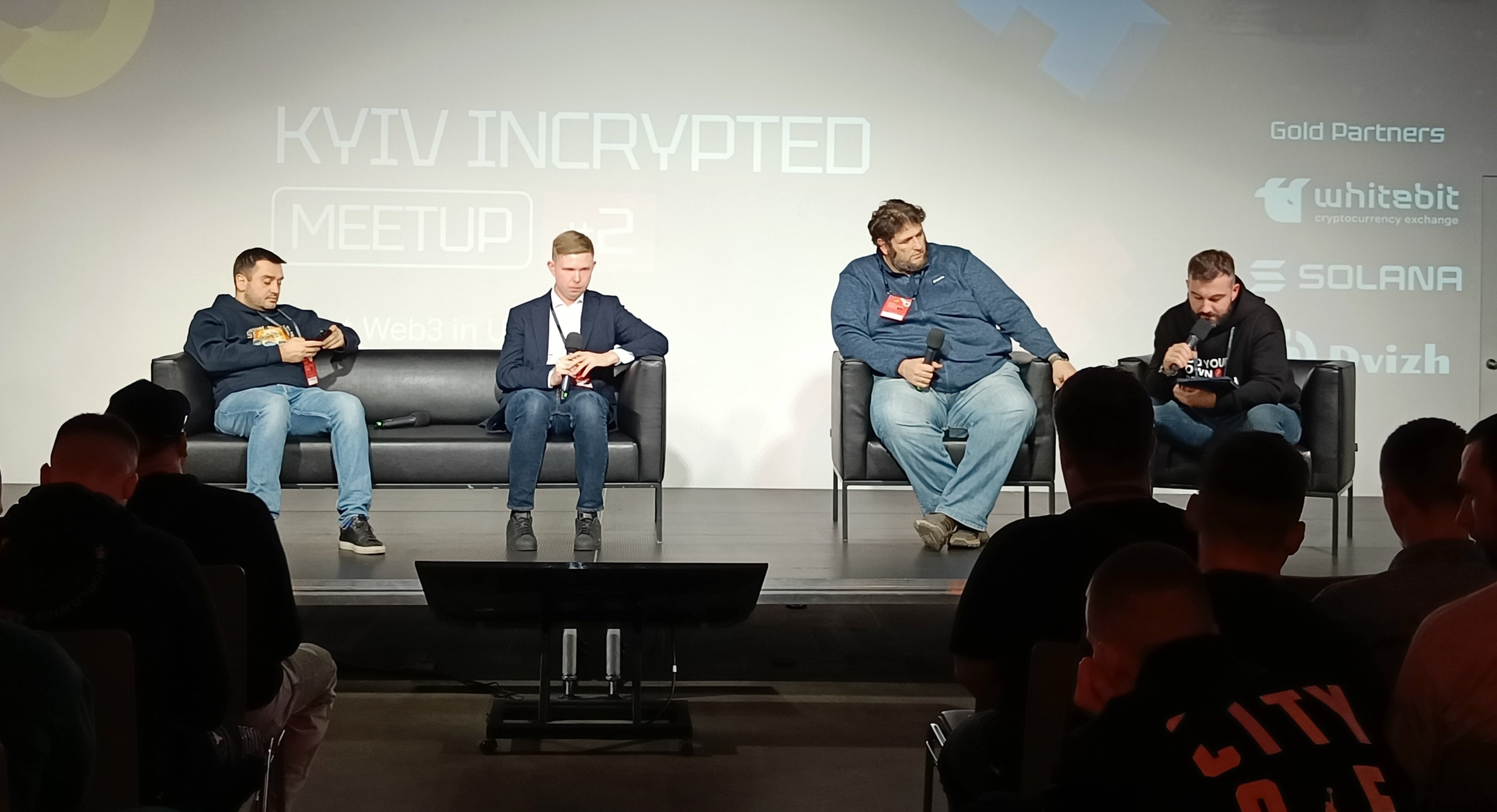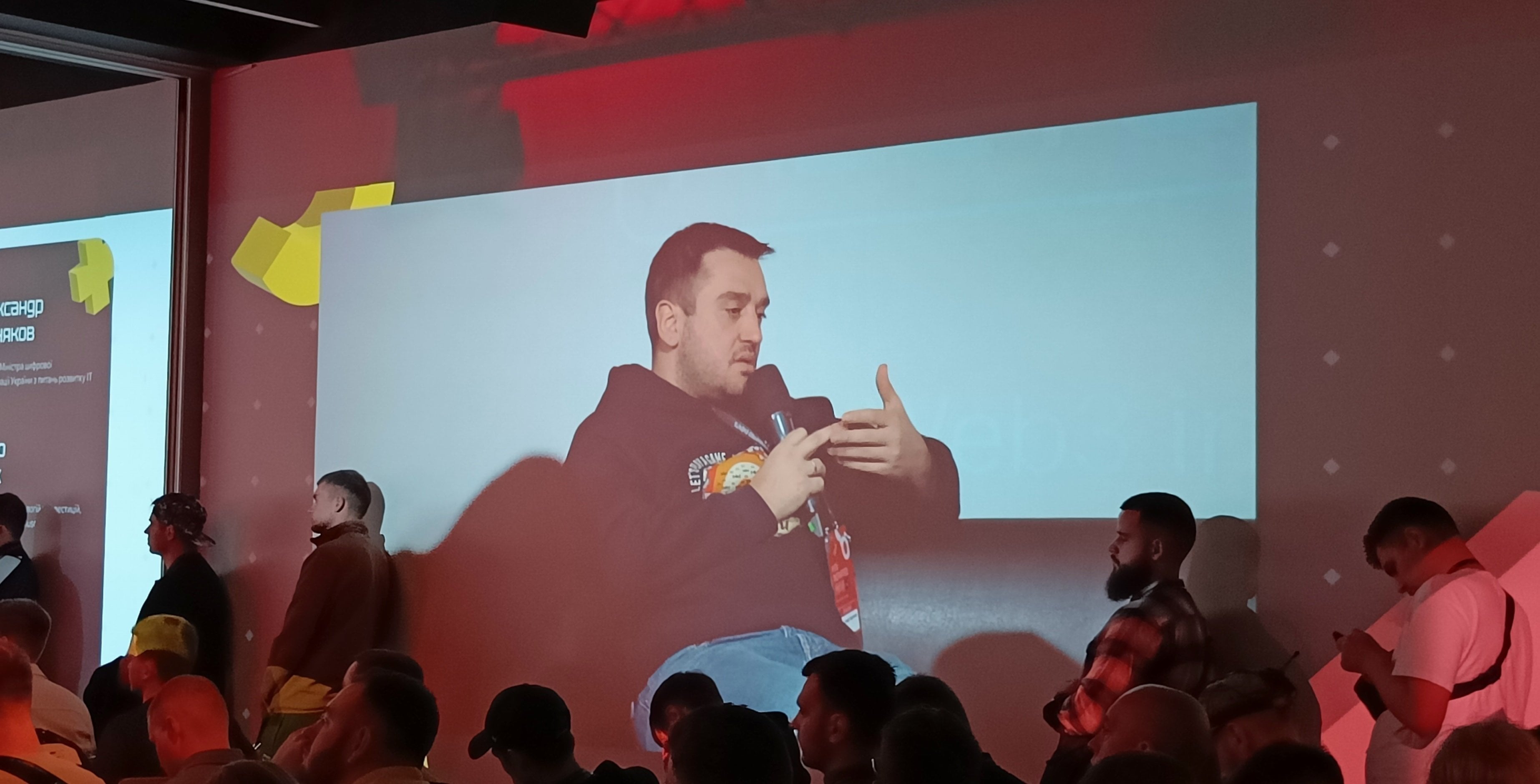What's Behind the Crypto Regulation Delay in Ukraine?

On November 3, in Kyiv, an electrifying panel discussion went down at the Incrypted Meetup #2, featuring Ukraine's officials. It was a rare chance for the crypto community to get the lowdown on the state of regulations in the country.
The panel discussion included Alex Bornyakov, Deputy Minister of Digital Transformation of Ukraine; Maksym Libanov, a member of the National Securities and Stock Market Commission (NSSMC); and Peter Bilyk, Chief Innovation Officer at law firm Juscutum.

The panel discussion on crypto regulation in Ukraine. Source: GNcrypto
It's noteworthy that conversations about cryptocurrency regulation in Ukraine had already started before the outbreak of the full-scale war. This raises the question of whether the Ministry of Digital Transformation is genuinely hesitant to swiftly embrace cryptocurrency in the country. Alex Bornyakov's response, however, suggests a different perspective.
The Stance of the Ministry of Digital Transformation
The Deputy Minister of Ukraine's Ministry of Digital Transformation highlighted that the stumbling block is the final version of the proposed legislation. The provisions are overly strict, and the rationale for implementing the MiCA regulation appears to have been overlooked. Additionally, Ukraine is not currently bound by any agreement with the European Union that would mandate adherence to MiCA's framework.As a result, Alex Bornyakov suggested that it might be more pragmatic to enact national legislation. This approach would allow market participants to adapt and gain experience before transitioning to European standards.

Alex Bornyakov at the Incrypted Kyiv Meetup #2 Source: GNcrypto
The Stance of the National Securities and Stock Market Commission
Maksym Libanov, the NSSMC member, expresses a contrasting opinion: if we are to aim for EU membership, we must adhere to all requisite standards from the get-go, including the regulation of crypto assets. By the end of 2023, the European Commission is expected to initiate membership negotiations with Ukraine, and the country should have everything in place by the conclusion of these talks.
Furthermore, he emphasized that we cannot simultaneously expedite our EU entry while also postponing the ratification of the essential legislative framework required for it. The two are interdependent; if the President has set a goal to prepare for EU accession within a specific timeframe, then we must meet it.

Maksym Libanov at Incrypted Kyiv Meetup #2 Source: GNcrypto
Recommended

